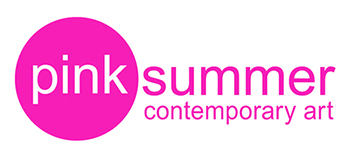Luca Trevisani – del taglio

Press release
Del taglio is a series of knives in the guise of the animals we eat and cut, constructed to establish a correspondence between material, form, uses and senses.
An archipelago of sharp forms, objects but also subjects, that take on the spiritual management of the power relationship between our stomach and the world, sublimating into contradictory and provocative talismans. The different kind of life forms as ghosts to challenge our passive and automatic relationship with the idea of food, diet and matter. The morphology of the living as a pick with which to embody a whole series of tensions and relationships that too often remain silent and invisible, and to investigate the Western perception of the world, and shift its center of gravity from the eyes to other parts of the mind.
The cut as a form of thought, as a sculptural figure with which to find the good articulations of the world, the cut and its paradoxical sweetness, the cut as a cultural and cultic gesture, as mythologema. The mouth, the hand, the nurture: a never-ending writing where the distinction between the self, the body and the environment are no longer so certain.
Nurture as energy exchange, as the incessant production and destruction of forms, the supreme distiller of metamorphosis. Which to be understood must be formalized, coagulated, replicated.
Making sculpture is that specific way in which man seems to have always tried to stop the impermanence of life, to give time a solid body, and make the moment the story. It is an energetic practice, an experience that embodies immaterial forces, an act of imagination that unites the occult and visible parts of the world in an unprecedented mixture.
Cutting, separating, but also straightening, or freeing, and the taboo of danger. Knives are apotropaic objects designed to ward off bad luck, combining a protective and devotional function with a decorative one. An ordinary object but also an expression of popular epos, an essential tool for the agro-pastoral economy, a symbol of social ties, and an embodiment of power.
Working on an archetypal paradigm such as the knife, on a cultural fossil, is a way of disarticulating our idea of technology, of digital progress, and of freeing ourselves from the frenzies and stereotypes of the present. The past is the only future of our future.


